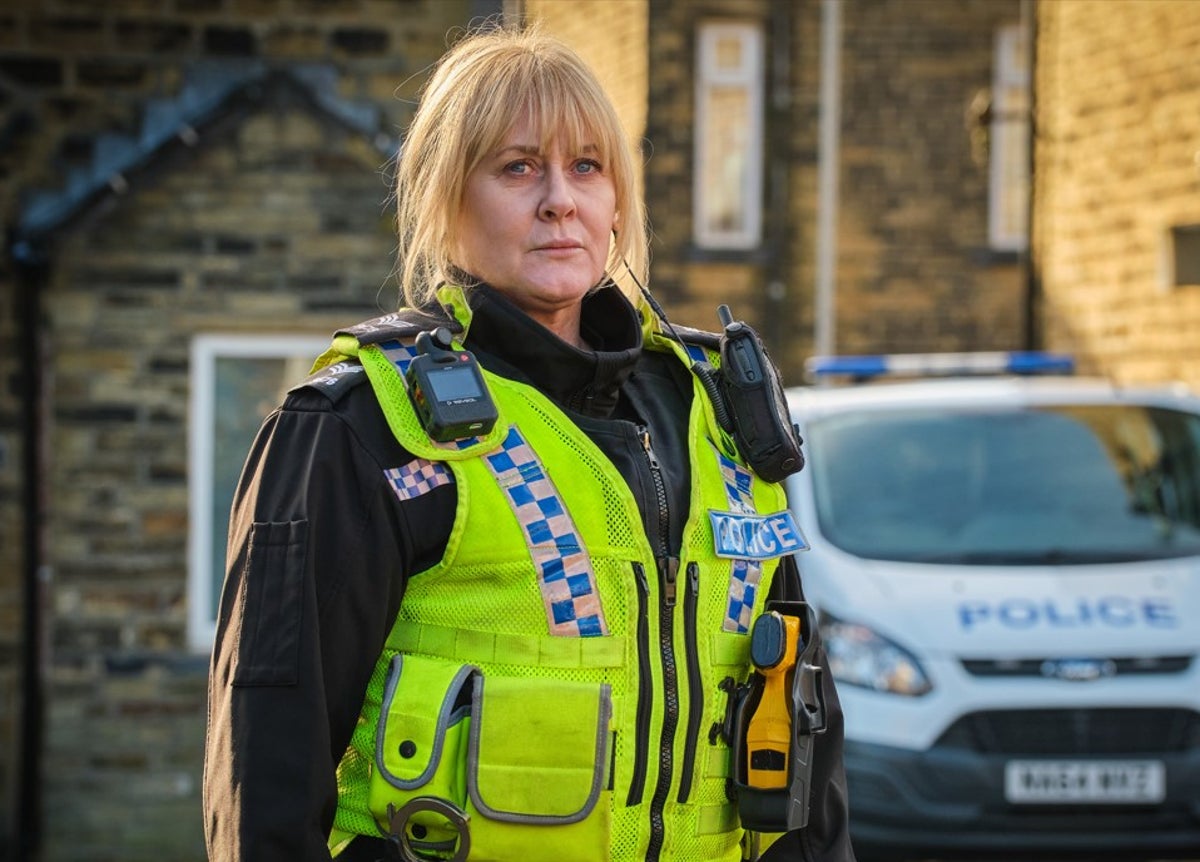
There are very few TV shows that truly stamp themselves on the cultural psyche. Usually, they’re big, genre-defining American shows. The Sopranos, say, or The Simpsons. But no programme has had a greater influence, in recent years, than Sally Wainwright’s blistering Brontë-country barnstormer, Happy Valley. From Mare of Easttown to Fargo, the fingerprints of Happy Valley are all over prestige TV, like my thumb marks in the Christmas Wensleydale. Now, after a seven-year break (in which nothing good has happened to the world, and I blame its absence), the show is finally back on BBC One, where it belongs.
The new year’s return to the Calder Valley finds an ill-fitting contentment descended upon the Cawood family. Catherine (Sarah Lancashire) is approaching retirement but seems to be relishing both her final months in the job and her future plans. “Don’t get me wrong, I’m very proud of my 30 years,” she tells her sister Clare (Siobhan Finneran), “but job done.” Meanwhile, grandson Ryan (Rhys Connah) is, seemingly, a normal teenager – loudly berating his teammates on the football pitch and making crude jokes with friends. His biological father, convicted murderer Tommy Lee Royce (James Norton), is safely behind bars. What could go wrong?
Well, this is Happy Valley, a land governed only by Murphy’s law. Anything that can go wrong, will go wrong. The Cawood equilibrium begins to unravel with the discovery of a body in a quarry, a murder that’s immediately linked back to Royce. But that’s work, and Catherine is able to compartmentalise (she is, in her own words, “the best copper that ever lived”). What she’s less able to compartmentalise is the revelation that Ryan has spent the last few years visiting his incarcerated father on the sly – and in violation of his grandmother’s expressed wishes.
The Cawood clan anchor the plot but, as ever, Happy Valley’s signature character is an ordinary man dragged, by the tides, further and further out of his depth. Series three’s iteration (following standout turns by Steve Pemberton and Kevin Doyle) is Amit Shah as pharmacist Faisal. His willingness to dispense off-the-books diazepam gets him in trouble both with the Knezovic family of local crime lords, and the Hawthorn family: both horrible dad Rob (Mark Stanley) and addicted mum Joanna (Mollie Winnard).
Happy Valley has always been an ensemble piece, led by two standouts. Writer Sally Wainwright, whose rhythmical dialogue and propulsive plotlines are the show’s beating heart, and Sarah Lancashire, as the determined, and frequently dyspeptic, Catherine. A sequence of interlacing timelines in this opening episode shows how brilliantly they work in tandem: simultaneously, Catherine recounts to her sister the story of a raid, while we, the audience, see that arrest play out on screen. It is the sort of virtuosity that only a creative collaboration with total self-confidence can pull off.
But the seven years that Happy Valley has been off our screens does create some narrative pressures. Expository comments creep into discussions, especially where long-dead characters are concerned, and there is a small tendency towards remarks that feel needlessly like footnotes to the story (“Did you tell her we get more people turning up addicted to prescription drugs than we do heroin?” asks Clare, when Catherine tells her about a potential referral). But these are thin critiques of a show that is both funny and brutal, flamboyant yet authentic.
Happy Valley is already the marker against which modern TV drama, in this country, is held, and this long-awaited return finds itself in the strange position of playing to an audience who have already canonised its predecessor. But viewers nervous that Wainwright and Co might fail to recapture the Yorkshire magic – which made the show such a dark delight – need not have worried. This final spin over the moors is a worthy way to round out one of British television’s greatest sagas.







